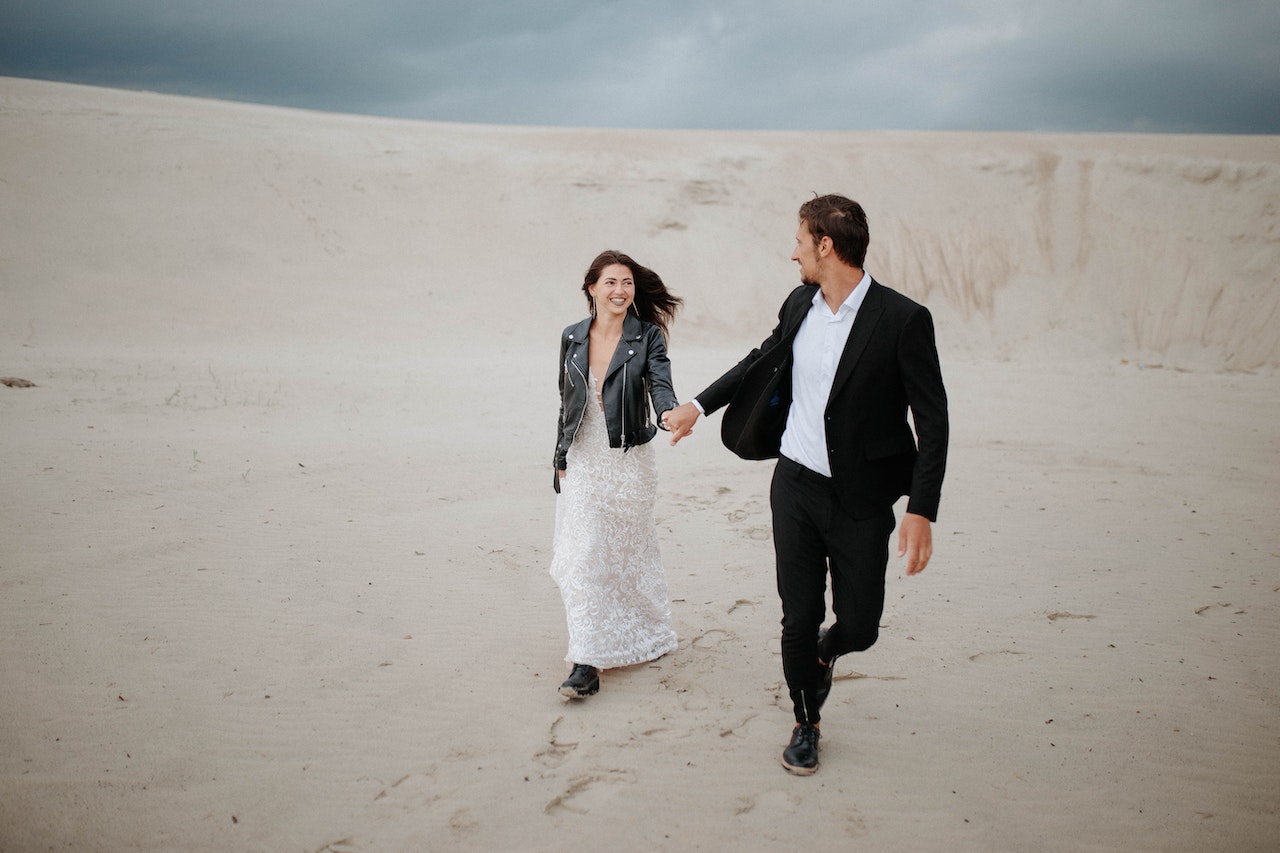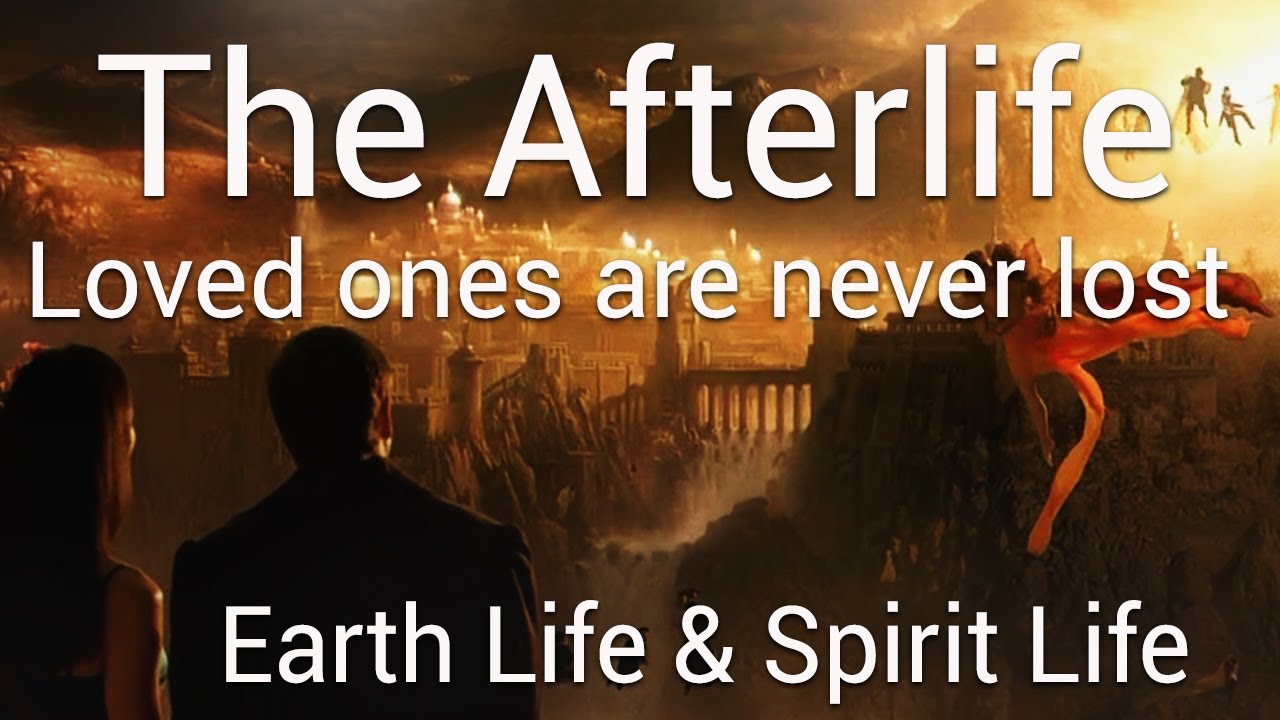How Can We Meet Our Loved Ones In The Afterlife?
This belief has led many to wonder, "How can we meet our loved ones in the afterlife?" In this article, we will explore various perspectives and beliefs about the afterlife and ways in which people believe they can be reunited with loved ones.
Author:Evelyn AdamsReviewer:Calvin PenwellMar 21, 202328 Shares531 Views

The concept of life after death has been a topic of interest and debate for centuries. Many people believe that after we die, our souls continue to exist and may be reunited with loved ones who have passed on.
This belief has led many to wonder, "How can we meet our loved ones in the afterlife?" In this article, we will explore various perspectives and beliefs about the afterlife and ways in which people believe they can be reunited with loved ones.
Cultural Beliefs About The Afterlife
Different cultures have varying beliefs about what happens after we die. Some people believe in reincarnation, where the soul is reborn into a new body, while others believe in an afterlife where the soul goes to a different realm or plane of existence.
In many cultures, the afterlife is thought to be a place where the souls of the deceased are reunited with loved ones who have passed on before them.
For example, in ancient Egyptian culture, it was believed that the deceased person's heart was weighed against a feather to determine whether they were worthy of entering the afterlife.
If the heart was lighter than the feather, the person was allowed to enter the afterlife and be reunited with their loved ones.
In Hinduism, reincarnation is a fundamental belief. It is believed that the soul is reborn into a new body after death and that this cycle continues until the soul achieves enlightenment and merges with the divine.
Religious Perspectives
Religious beliefs also play a significant role in people's beliefs about the afterlife. In Christianity, for example, it is believed that after death, the soul goes to either heaven or hell, depending on whether they have accepted Jesus Christ as their savior.
In heaven, it is believed that the soul is reunited with loved ones who have also been saved.
Similarly, in Islam, it is believed that after death, the soul goes to a place called Barzakh, where it waits until the Day of Judgment. On this day, the soul is judged, and if deemed worthy, enters paradise, where it can be reunited with loved ones who have also been admitted.
In Judaism, there are differing beliefs about the afterlife. Some people believe in a physical resurrection of the dead, where the soul is reunited with the body and together they enter the afterlife.
Others believe in a more spiritual afterlife, where the soul continues to exist in a different realm.
Spiritual Perspectives
Apart from cultural and religious beliefs, there are also spiritual perspectives on the afterlife. Many spiritual practitioners believe that we can communicate with our loved ones who have passed on through mediums or psychics.
Some even believe that we can receive signsor messages from our loved ones in the form of dreamsor other experiences.
Others believe that the afterlife is not a physical place, but rather a state of consciousness. In this state, it is believed that the soul is free from the physical body and is able to connect with loved ones who have also passed on.
How Can We Meet Our Loved Ones In The Afterlife?
Given the various beliefs and perspectives on the afterlife, it can be challenging to determine how we can meet our loved ones after death. However, there are a few common themes that emerge from these beliefs.
Unconditional Love
Many people believe that the key to meeting our loved ones in the afterlife is unconditional love. This means that if we have truly loved someone in life, that love will continue beyond death, and we will be reunited with them in the afterlife.
This belief is often expressed in religious and spiritual teachings, where love is seen as the ultimate force that connects us all.
Spirituality
Another common theme is spirituality. Many people believe that if we live a spiritual life and cultivate a strong connection with the divine, we will be more likely to meet our loved ones in the afterlife.
This is because spiritual practices help us to connect with our true selves and with the universal energy that underlies all of existence.
Reincarnation
For those who believe in reincarnation, meeting loved ones in the afterlife may mean being reborn into the same family or community. This belief suggests that our souls are connected to certain groups of people and that we will continue to be connected to them even after death.
Near-Death Experiences
As mentioned earlier, near-death experiences are often associated with seeing deceased loved ones or entering a peaceful, loving environment.
While the scientific community is still divided on the validity of NDEs, these experiences have provided many people with a sense of hope that there is something beyond death and that we may be reunited with our loved ones in the afterlife.
Mediumship
Many people turn to mediums or psychics as a way to communicate with their loved ones who have passed on. While there is much debate about the validity of mediumship, some people believe that certain individuals have the ability to communicate with the spirits of the deceased and that this can be a way to meet our loved ones in the afterlife.
Dreams And Signs
Finally, some people believe that our loved ones who have passed on may communicate with us through dreams or signs.
These may include seeing a particular bird or animal, hearing a certain song, or experiencing other coincidences that remind us of our loved ones. While these experiences may be dismissed by some as mere coincidence, they can be a source of comfort and hope for those who believe in them.
Spiritual Guides And Angels
Many belief systems include the idea of spiritual guides or angels who watch over and guide us in life. These guides may be seen as benevolent beings who offer protection, guidance, and support, and who may continue to watch over us after death.
For some people, the idea of spiritual guides or angels can offer a source of comfort and reassurance that their loved ones are being cared for and guided in the afterlife.
These guides may be seen as intermediaries who can help us to connect with our loved ones, or who may help us to process our grief and find meaning and purpose in life.
While the concept of spirit guides or angels may vary depending on individual beliefs and cultural traditions, the idea of benevolent beings who watch over and guide us can offer a sense of connection and continuity that transcends death.

You will see and meet loved ones after death
Death Rituals And Traditions
Death rituals and traditions vary widely across different cultures and belief systems, but many share the goal of facilitating a peaceful transition into the afterlife and honoring the memory of those who have passed on.
These rituals and traditions may include religious ceremonies, funeral rites, or cultural practices that help to mark the passage from life to death.
For many people, these rituals and traditions offer a sense of connection and continuity that extends beyond death. They may help to facilitate a sense of closure and provide a means of honoring the memory of loved ones who have passed on.
Some traditions may also include beliefs about the afterlife and the possibility of meeting loved ones, offering a source of comfort and hope for those who are grieving.
While death rituals and traditions can vary widely depending on cultural and religious beliefs, they all share a common goal of helping to honor the memory of those who have passed on and facilitate a peaceful transition into the afterlife.
People Also Ask
What Is The Concept Of A Soul?
The soul is often seen as the immaterial essence of a person that continues to exist after death.
What Is The Difference Between Heaven And The Afterlife?
While the concept of heaven is often associated with certain religious beliefs, the afterlife can encompass a wide range of beliefs and experiences beyond the idea of a specific heavenly realm.
How Can We Cope With The Loss Of A Loved One?
Coping with the loss of a loved one can involve a variety of strategies, including seeking support from others, engaging in self-care, and finding ways to honor and remember the person who has passed on.
Conclusion
The question of how can we meet our loved ones in the afterlife is one that has fascinated and intrigued people for centuries.
While there are many different beliefs and perspectives on the afterlife, there are also some common themes that emerge. These include the importance of unconditional love, spirituality, reincarnation, near-death experiences, mediumship, and dreams and signs.
Ultimately, the answer to this question may never be fully known, and it may be a matter of personal belief and faith. However, for those who have lost loved ones, the hope that we may be reunited with them in some way after death can provide a sense of comfort and peace.
Whether through religious or spiritual beliefs, personal experiences, or other means, the idea that love can transcend death and that we may be reunited with those we have lost is a powerful and enduring one.

Evelyn Adams
Author
Evelyn Adams is a dedicated writer at Kansas Press, with a passion for exploring the mystical and uncovering hidden meanings.
Evelyn brings a wealth of knowledge and expertise to her insightful articles. Her work reflects a commitment to providing accurate information, thoughtful analyses, and engaging narratives that empower readers to delve into the mysteries of the universe.
Through her contributions, Evelyn aims to inspire curiosity, spark imagination, and foster a deeper understanding of the supernatural world.

Calvin Penwell
Reviewer
Since diving into numerology in 1997, my path has been marked by extraordinary encounters and insights. A pivotal moment was uncovering a forgotten numerological manuscript in a tucked-away Italian library, which deepened my connection to the ancient wisdom of numbers. Another transformative experience was a meditation retreat in Nepal's tranquil mountains, where I honed my intuition and the art of interpreting numerical vibrations.
These adventures have not only enriched my numerological practice but also my ability to guide others towards understanding their destiny and life's purpose. My approach is deeply personal, rooted in a blend of historical knowledge and intuitive insight, aimed at helping individuals find their alignment with the universe's abundant energies. My mission is simple: to share the power of numerology in illuminating paths to abundance and fulfillment.
Latest Articles
Popular Articles
